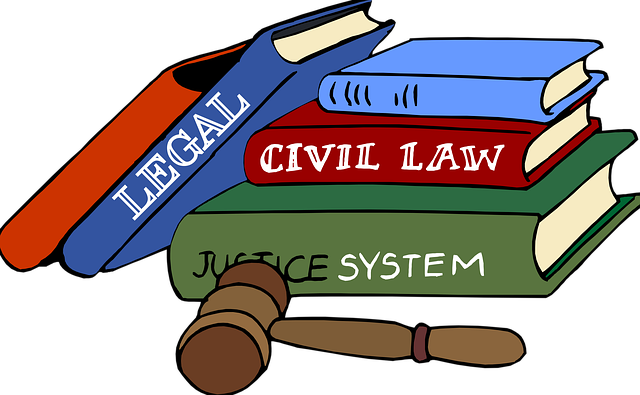C-Level Investigations demand meticulous scrutiny of top executives facing misconduct allegations, spanning local and international laws. Understanding Legal Grounds for Criminal Appeal is crucial to ensure justice, public trust, and accountability. A comprehensive approach involves a deep dive into relevant laws, frameworks, and precedents, with robust appeals challenging convictions based on procedural errors or new evidence, ultimately aiming to protect rights and prevent miscarriages of justice. Specialized legal counsel is essential for successful appeals in high-stakes cases.
In the complex landscape of corporate governance, C-Level investigations pose unique challenges. This comprehensive overview delves into the intricacies of high-level inquiries, focusing on strategic planning and legal frameworks. Understanding the criminal appeal process and its grounds is paramount for navigating these delicate matters. From evaluating valid claims to crafting compelling arguments, this article provides insights into mastering Legal Grounds for Criminal Appeal, ensuring successful outcomes in challenging times.
- Understanding C-Level Investigations: A Comprehensive Overview
- Legal Framework: Navigating Criminal Appeal Process
- Grounds for Appeal: Evaluating Valid Claims and Evidence
- Strategic Planning: Crafting a Successful Criminal Appeal Case
Understanding C-Level Investigations: A Comprehensive Overview

C-Level Investigations refer to thorough and sensitive inquiries into matters involving top-level executives and high-ranking officials within organizations. These investigations are typically launched when there are allegations or suspicions of misconduct, illegal activities, or ethical breaches at the highest levels. They demand a meticulous approach due to the significant legal, financial, and reputational implications involved. The scope encompasses not just internal company policies but also adherence to local and international laws, including those related to criminal offenses and white-collar crimes.
Understanding the legal grounds for criminal appeals is crucial in these high-stakes cases. The philanthropic and political communities often find themselves at the intersection of such investigations, as they navigate complex ethical landscapes. The goal is not merely to achieve extraordinary results through these probes but also to uphold justice, maintain public trust, and ensure accountability. A comprehensive overview should include a deep dive into relevant laws, regulatory frameworks, and precedents to guide decision-making and strategy in these delicate matters.
Legal Framework: Navigating Criminal Appeal Process

The legal framework surrounding criminal appeals is a intricate labyrinth designed to ensure fairness and justice in high-stakes cases. When navigating this process, understanding the specific Legal Grounds for Criminal Appeal is paramount. These grounds, as stipulated by law, allow individuals to challenge their convictions or sentences if there was a procedural error or new evidence that could significantly alter the outcome.
For those involved in philanthropy or political communities, recognizing when these appeals are warranted can be crucial. Given the unprecedented track record of successful appeals for those with strong legal representation, understanding this process is essential. This ensures not only the protection of rights but also serves as a safeguard against potential miscarriages of justice within these influential circles.
Grounds for Appeal: Evaluating Valid Claims and Evidence

When considering Legal Grounds for Criminal Appeal, a thorough evaluation of valid claims and evidence is paramount. Appeals are often launched when individuals believe there was a miscarriage of justice during their trial. This involves scrutinizing all stages of the investigative and enforcement process to identify any procedural errors or violations of legal rights. A comprehensive review ensures that the verdict reflects fair and impartial adjudication, aligning with the principles upheld by philanthropic and political communities.
The grounds for appeal must be robustly supported by substantial evidence, demonstrating a reasonable probability of a different outcome if the case were retried. This process requires meticulous attention to detail, including the admissibility of new or previously overlooked evidence, as well as any legal arguments that could lead to a complete dismissal of all charges. Ultimately, the goal is to ensure justice and protect the rights of the accused throughout the entire legal process.
Strategic Planning: Crafting a Successful Criminal Appeal Case

In the strategic planning phase of a C-Level investigation, crafting a successful criminal appeal case involves meticulous consideration of legal grounds for criminal appeal. This includes examining the procedural errors committed during the initial trial, evaluating the sufficiency of evidence presented against the accused, and assessing any potential violations of constitutional rights. A robust strategy will identify these issues to build a compelling argument that can lead to the complete dismissal of all charges.
For high-stakes cases, where the stakes are high and reputations are on the line, a general criminal defense approach may not suffice. Instead, specialized legal counsel is crucial to navigate the complexities involved in such investigations. By leveraging knowledge of legal grounds for criminal appeal, experienced attorneys can construct robust appeals that challenge the prosecution’s case and aim for the most favorable outcome, which could result in the dismissal of all charges against the client.
C-Level investigations, requiring a thorough understanding of legal frameworks and strategic planning, are crucial processes that can significantly impact outcomes in criminal appeals. By meticulously evaluating evidence and aligning it with robust legal arguments based on the specific legal grounds for criminal appeal, individuals and organizations can navigate complex systems more effectively. This comprehensive approach ensures that every aspect of an appeal is thoroughly considered, ultimately enhancing the chances of a favorable outcome.






